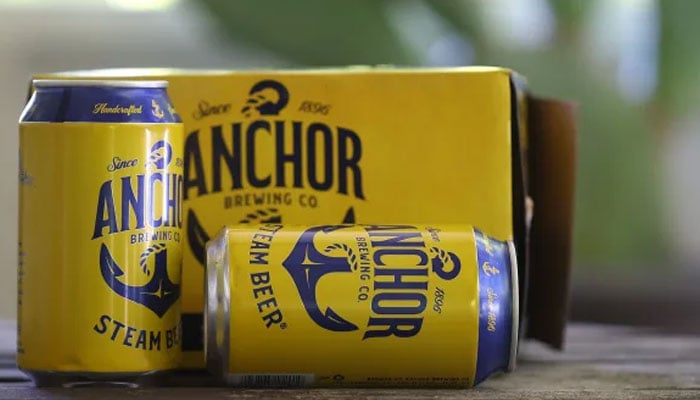

Anchor Brewing, America’s oldest craft brewery founded in San Francisco in 1896, has made the difficult decision to shut down after 127 years of operation.
The closure comes as a result of years of declining sales, exacerbated by the challenges posed by the COVID-19 pandemic. Japanese brewing company Sapporo, which acquired Anchor Brewing in 2017, said that their efforts to revive the brand had not been successful.
The closure of Anchor Brewing marks the end of an era for craft beer enthusiasts and the wider brewing industry. The company, often referred to as the “godfather” of American craft brewing, played a pivotal role in the craft beer renaissance. Garrett Oliver, brewmaster of Brooklyn Brewery, expressed his sorrow over the loss, stating, “Anchor was essentially the grandfather of all American craft brewing… That was Anchor Brewing Company. And all their people were the best.”
Anchor Brewing faced numerous challenges in recent years, including a highly competitive market, inflation, and declining sales. The COVID-19 pandemic dealt a significant blow, as 70% of the company’s sales came from restaurants and bars, which suffered greatly during the pandemic. Sam Singer, a spokesperson for Anchor Brewing, acknowledged the impact of the pandemic, stating, “The stake through the heart of Anchor was the pandemic.”
While craft beer has seen a surge in popularity over the years, independent breweries have faced economic challenges. Anchor Brewing’s closure reflects the struggles faced by craft beer distributors in the wake of changing consumer habits and declining sales. The pandemic further intensified these difficulties, leading to the acquisition, rebranding, or closure of smaller breweries across the industry.
The legacy of Anchor Brewing is deeply rooted in American brewing history. The company survived historic events such as San Francisco’s earthquake and the prohibition era. Under the ownership of Fritz Maytag, Anchor Brewing experienced a resurgence, popularising specialty beers like their pale ale and Christmas ale.
Anchor Brewing hopes to find a buyer during the liquidation process, but the future remains uncertain. The company will continue packaging and distributing its remaining inventory in California until the end of July. Despite the challenges faced, the impact of Anchor Brewing’s closure on the craft brewing industry and the legacy it leaves behind cannot be overlooked.
As Oliver aptly said, “It takes a lot of creativity, nimbleness, and no small amount of luck for breweries, even great ones, to survive all storms and remain the choice of the people. I hope they climb back somehow.”